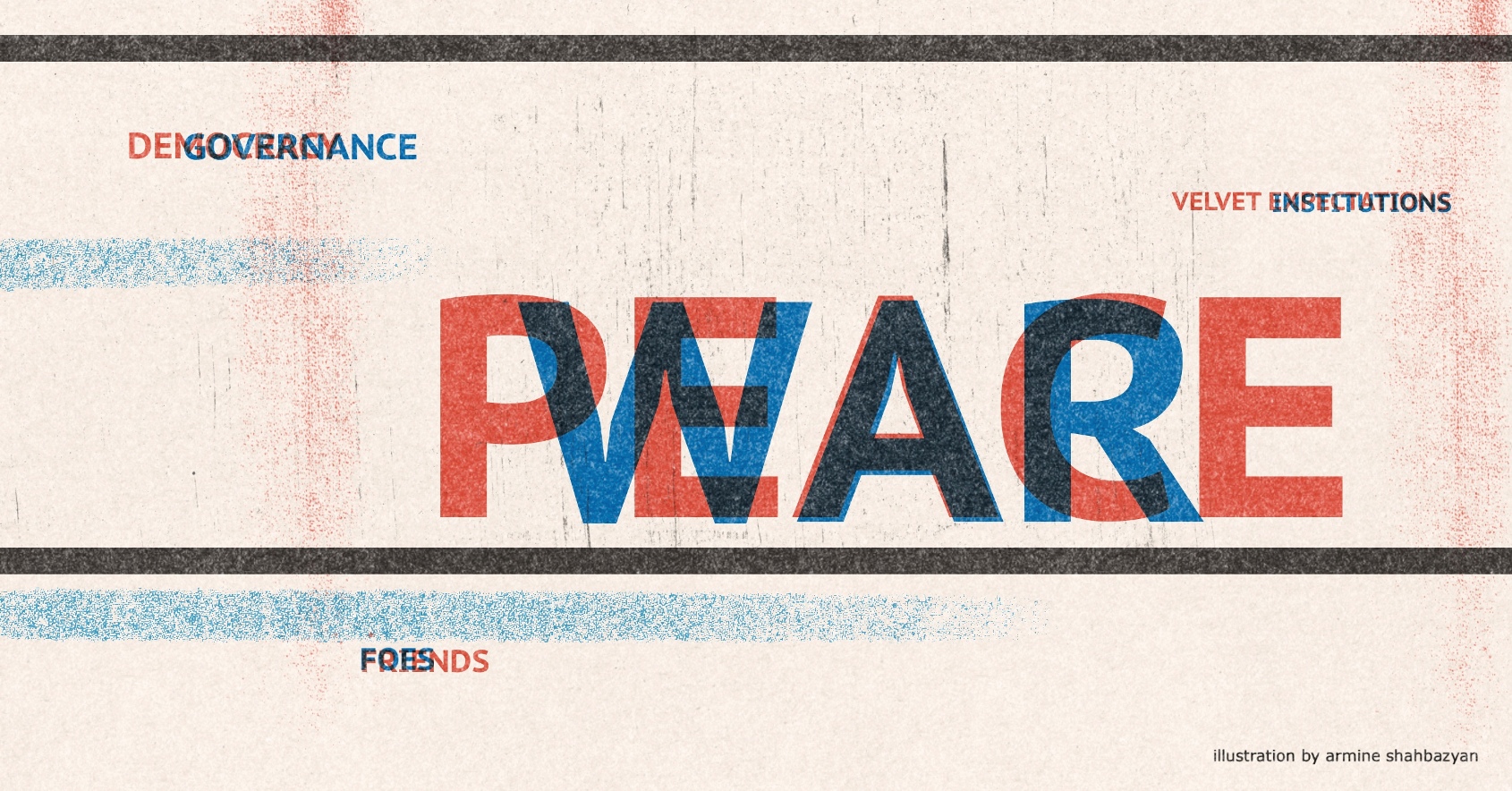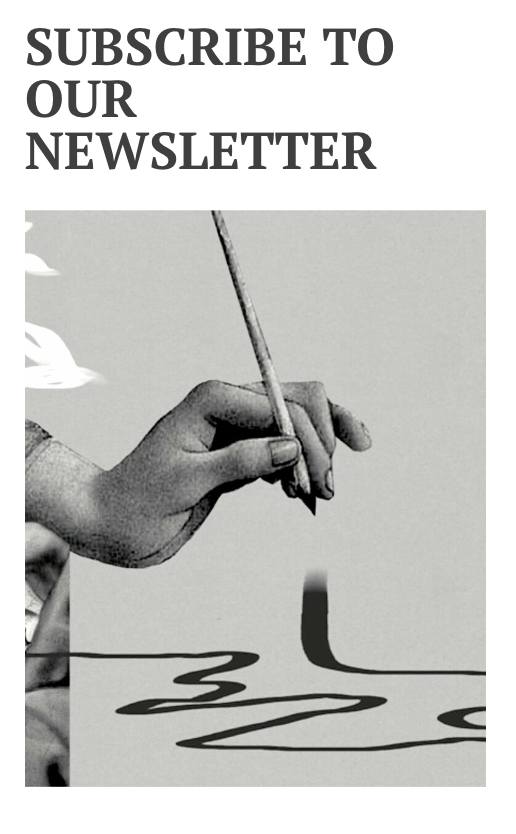
Listen to the article.
The Caucasus Research Resource Center (CRRC) recently released its 2024 Caucasus Barometer survey, conducted between July 27 and October 10 last year among 1,561 Armenian adults. It is a household survey about social-economic issues and political attitudes that has been conducted in Armenia regularly since 2008. The previous one was carried out in late 2021 and early 2022. The survey offers insights into the Armenian public’s perception in the aftermath of losses, and ongoing diplomatic realignments and security concerns.
Mood and Direction
In the aftermath of the 2020 war in Nagorno-Karabakh (Artsakh), the September 2022 Azerbaijani incursion into Armenia, and the 2023 takeover of Nagorno-Karabakh and ethnic cleansing of its Armenian population, anxiety over security continues to dominate the public discourse and mood, with lack of peace (42%) and unresolved conflicts (9%) topping the list of the country’s main problems. The top second and third most important issues are poverty (11%) and unemployment (10%).
Nearly twice as many respondents feel that domestic politics are going in the wrong direction than the right direction (38% vs 21%).
Nevertheless, the vast majority of respondents remain optimistic that “everything will be fine” in Armenia rather than “never improve” (76% vs 18%). Further insight into public sentiment comes from emigration questions, which show that 22% of respondents said they would want to leave Armenia permanently, which is closer to the lowest on record (20% in 2008). Those wanting to emigrate temporarily stood at 54%, a figure that has remained surprisingly consistent through the years.
War and Peace
An overwhelming majority (90%) of Armenians desire peace with Azerbaijan, but only half believe it will likely materialize, while 30% do not expect peace to be achieved. Security anxieties remain pervasive, with 70% considering another war likely. The timeline of this perceived threat varies: 28% fear conflict within a year, 29% within four years, and 10% see it as a longer-term risk beyond five years.
When asked about prerequisites for lasting peace, Armenians identify multiple necessary conditions. Formal diplomacy leads these priorities, with 22% emphasizing the need for a peace treaty. However, security considerations follow closely, with 20% prioritizing military strength. Historical grievances also shape peace requirements, with 15% demanding recovery of lost territories and 11% calling for the return of prisoners of war. Only 4% place primary hope in international security guarantees.
The war[s] with Azerbaijan have left profound personal impacts, with 86% of Armenians reporting negative effects on their lives. Respondents also express wide solidarity with Karabakh refugees; 62% express a sense of responsibility toward displaced persons, and a majority (52%) believe Karabakh refugees positively contribute to their host communities.
In reflecting on recent territorial losses, Armenians display complex attitudes toward responsibility and causality. An overwhelming 83% attribute these defeats to “our own mistakes and treacheries”. Simultaneously, 77% see the conflict as a product of larger geopolitical machinations, while 65% view its trajectory as essentially predetermined. These contradictory sentiments reveal a public grappling with agency and fatalism. Two-thirds of Armenians reject the notion that the Nagorno-Karabakh conflict is over, with only 20% considering it resolved.
Democracy and Governance
Democratic sentiment has eroded since the initial euphoria of the 2018 Velvet Revolution. Current attitudes mirror those of the mid-2010s, with only one-third of respondents stating that democracy is preferable to any other system, while an equal portion express indifference to the form of government. Notably, the 2022 and 2024 surveys recorded historic highs in support for potentially non-democratic governance under certain circumstances (22% and 20% respectively). This democratic disillusionment extends to electoral participation, with Armenians evenly divided on whether their votes matter or not.
Despite the decline in enthusiasm for democracy, 73% of respondents still categorize Armenia as a democracy, though with significant qualifications. A plurality (39%) view it as a democracy with major problems, while 26% see only minor issues, and just 8% consider it a full democracy. This represents significant improvement from pre-2018 perceptions. However, a profound disconnect between citizens and government persists—71% believe officials are indifferent to public opinion, 64% feel powerless to influence government actions, and 57% perceive unfair treatment from authorities.
Institutions and Velvet Expectations
Government approval shows modest recovery, with trust in the executive at 28%—significantly higher than its 2022 low but far below Pashinyan’s 71% approval in 2019. His Civil Contract party maintains a leading position at 15% support, though dramatically down from 35% in 2019. Most telling is the surge in political disaffection, with 55% of Armenians now identifying with no party, up from 42% six years ago. Opposition parties like Kocharyan’s Armenia Alliance and Tsarukyan’s Prosperous Armenia registered support at 4% each.
Public disillusionment with the Velvet Revolution is evident, though initial enthusiasm remains in memory. While 72% recall having positive expectations from the 2018 revolution (down from 84% in 2019), a majority believe these hopes have been either entirely unfulfilled (40%) or barely realized (19%). Only 10% feel their expectations were completely met, contrasting sharply with 2019, when 73% believed their expectations had been somewhat or fully realized.
Among institutions, the military retains strong public confidence at 74%, despite declining from its 89% peak in 2019. The judiciary, however, continues to face deep public skepticism—53% express no trust in courts, and 71% perceive systematic favoritism in the judicial system, a persistent concern over the years.
Friends and Foes
Among neighboring countries, Iran inspires the most optimism, with half of Armenians anticipating improved relations with Tehran. Georgia occupies a neutral position, with a third expecting better ties while most predict stability in the relationship. In stark contrast, prospects for rapprochement with Turkey and Azerbaijan appear bleak—only 13% and 7% respectively foresee improvement, while substantial pluralities expect deteriorating relations (44% with Turkey and 54% with Azerbaijan).
A dramatic geopolitical realignment continues in Armenian public opinion. France maintains its recently acquired status as Armenia’s perceived primary friend at 37%, while Russia’s position has collapsed dramatically—from 83% in 2013 to just 14% today. Perhaps most tellingly, 28% of Armenians now believe their country has no genuine allies, and an overwhelming 80% feel abandoned to face regional challenges alone.
Armenians identify clear adversaries, with Azerbaijan (56%) and Turkey (28%) viewed as primary threats. Most striking is Russia’s transformation from trusted ally to perceived enemy—now cited by 10% of respondents, up from just 1% in 2019.
This deteriorating trust extends to Moscow-led regional organizations. The Collective Security Treaty Organization (CSTO) faces particular skepticism, with only 12% expressing trust while 62% explicitly distrust it. The Eurasian Economic Union (EAEU) fares somewhat better at 22% trust, though 44% remain distrustful. This translates to policy preferences, with 43% opposing Armenia’s EAEU membership against 32% supporting it.
The prospect of deeper integration with Russia through the Union State garners minimal support at 19% nationally, though with notable demographic and political divisions. Rural areas show twice the support (25%) as the capital Yerevan (13%), while opposition Armenia Alliance supporters (28%) are significantly more favorable to the idea than ruling party sympathizers (16%). Three years ago former president and opposition leader Robert Kocharyan endorsed the idea of deep integration with Russia and the Union State. Armenian officials have in recent years accused Moscow of pressuring it to join the Union State, effectively losing its sovereignty.
In a further sign of Russia’s diminished influence, only 9% of Armenians now view that country as a development model, trailing significantly behind France (22%) and the United States (12%).
European Union, NATO and Ukraine
Distrust in the EU has reached a record high at 43%, with trust at only 30%. Previously, distrust exceeded trust by just one percentage point in both 2013 and 2015. This growing skepticism likely stems from the EU’s energy dealings with Azerbaijan and EU Commission President Ursula von der Leyen’s characterization of Baku as a “reliable partner,” and Brussels’ (lack of) response to Azerbaijan’s forceful takeover of Nagorno-Karabakh in September 2023, which displaced the entire Armenian population.
Despite this distrust, nearly twice as many respondents support Armenia’s potential EU membership than oppose it (44% vs 26%). This poll was conducted before the recent parliamentary bill formally declaring the country’s intent to begin EU accession. Support varies significantly by political affiliation, with 61% of Civil Contract sympathizers favoring EU membership compared to 31% of Kocharyan’s Armenia Alliance supporters.
Trust in NATO remains low at just 19%, with distrust at 52%. Although not seriously discussed in policy circles, Armenians are evenly divided on the possibility of NATO membership. More than three years after Russia’s invasion of Ukraine began, Armenians are split on attributing blame for the conflict. Equal proportions (39% each) fault either Russia/Putin personally or Ukraine and the West. Meanwhile, the Armenian public maintains largely positive (46%) or neutral (34%) attitudes toward Russian migrants who have relocated to Armenia since 2022.
News Watch
Deja Vu in Gyumri: Controversial Former Mayor Returns
Vardan Ghukasyan, a controversial former mayor under criminal investigation, has returned to power in Gyumri with the backing of opposition factions, despite finishing second in the vote. The ruling party boycotted the vote and warned of an impending political crisis. Hranoush Dermoyan looks at Ghukasyan’s murky past.
Read moreMunicipal Elections: Opposition Wins in Parakar, Uncertainty in Gyumri
Residents of Gyumri, Armenia’s second largest city and the small town of Parakar headed to the polls in snap municipal elections on March 30. Hranoush Dermoyan breaks down the preliminary results.
Read moreArmenia and Azerbaijan Conclude Peace Talks
Armenia and Azerbaijan have finalized peace negotiations, with Yerevan accepting Baku’s proposals on the withdrawal of third-party forces on the border and all international legal claims. However, Baku insists Armenia amend its constitution to remove alleged territorial claims as a prerequisite to signing a peace treaty.
Read moreSlower Growth, Booming Trade, Declining Births: Armenia in 2024
Armenia’s economy continued to grow in 2024, though at a slower pace, while foreign trade surged. Inflation remained low, and employment reached record levels. However, birth rates declined significantly, and net migration remained negative, reflecting broader demographic shifts. Hovhannes Nazaretyan explains.
Read morePrimer: Armenia’s Ongoing Military Reforms
Armenia's ongoing military reforms, initiated after the 2020 Artsakh War, focus on modernizing and professionalizing the Armed Forces to meet the country’s security challenges. The newly released 10-year Concept outlines strategies for structural transformation, improving education, incentivizing service and enhancing civilian oversight.
Read more






